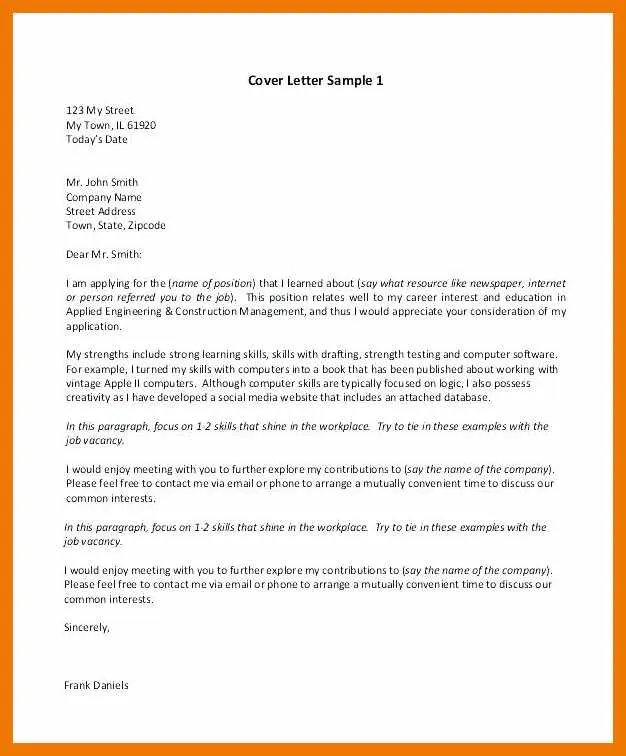Highlighting Your Skills for General Laborer Jobs
Landing a general laborer job quickly requires more than just submitting a cover letter and hoping for the best. It involves strategically highlighting your skills and demonstrating your value to potential employers. This section will guide you through showcasing the most sought-after qualities and experiences that will set your application apart from the competition. By focusing on these key aspects, you increase your chances of getting noticed and securing an interview, ultimately leading to a job offer. Remember that every detail in your application, from the language you use to the examples you provide, should aim to convince the employer that you’re the right fit for their team.
Key Skills for General Laborers
General laborer positions demand a diverse set of skills, both physical and interpersonal. Employers look for candidates who can perform a variety of tasks efficiently and effectively. Demonstrating these skills in your cover letter and interview is crucial for success. These skills not only show your capabilities but also your adaptability and your willingness to learn and grow within a work environment. A strong skill set increases your chances of not just getting the job but excelling in it. Highlighting these competencies can transform a standard application into a compelling narrative, making you a standout candidate.
Physical Stamina and Endurance
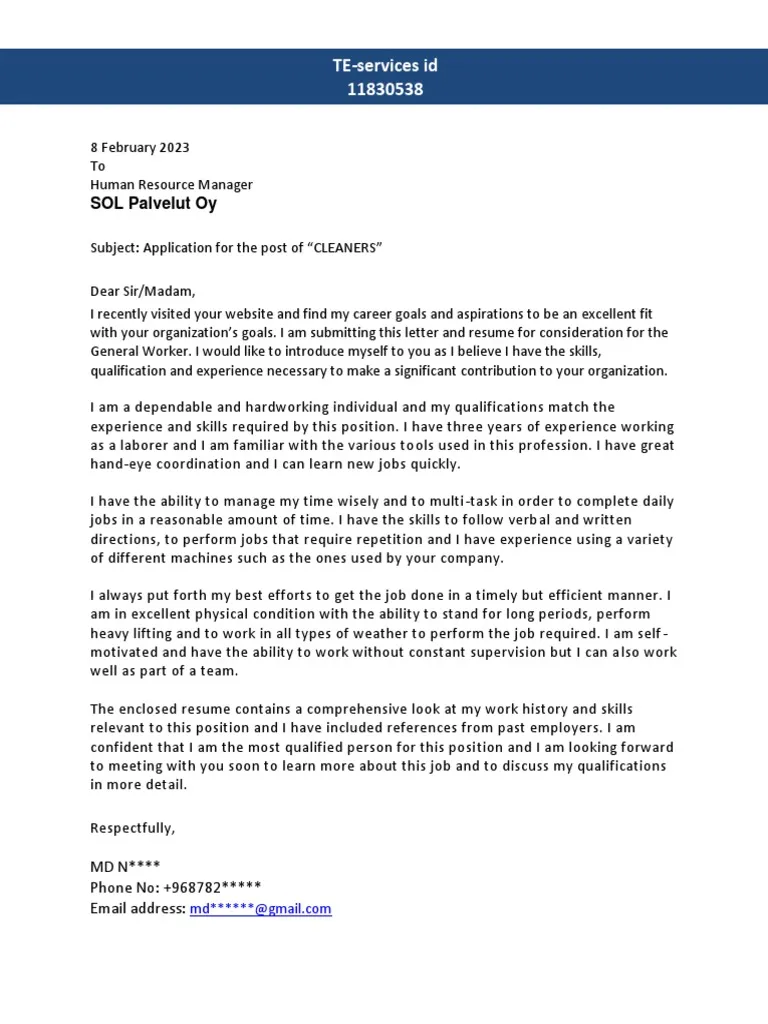
General labor often involves physically demanding tasks, such as lifting heavy objects, working outdoors in various weather conditions, and standing for extended periods. Emphasize your ability to handle these challenges. Provide specific examples of how you’ve demonstrated physical endurance in previous roles or activities. Mention any relevant certifications or training, such as first aid or safety courses. Physical stamina is one of the most important skills and employers will need to know if you have it. Use the right keywords to show that you have this skill, and you have the experience. For instance, you can mention your exercise routine or your experience with physical jobs.
Teamwork and Communication
General laborers often work as part of a team. Employers value candidates who can communicate effectively, collaborate with others, and contribute to a positive work environment. Highlight your ability to listen, follow instructions, and work cooperatively. Give examples of successful teamwork experiences and how you resolved any conflicts. Mention any experience with leadership roles or team projects. Teamwork and communication go hand in hand. You will always have to speak to other workers, and the lack of communication can cause several problems, which can be avoided if these two are practiced.
Ability to Follow Instructions
General laborers must be able to understand and follow instructions accurately and efficiently. This skill is critical for safety and productivity. Provide examples of times when you successfully followed instructions, especially in a work environment. Mention any experience with reading blueprints, technical manuals, or work orders. Emphasize your attention to detail and your commitment to quality. Detail your experience and how you put this ability to work in your everyday tasks. Your ability to follow instructions directly impacts your performance and the safety of the workplace, highlighting this skill is a must.
Crafting a Strong Cover Letter
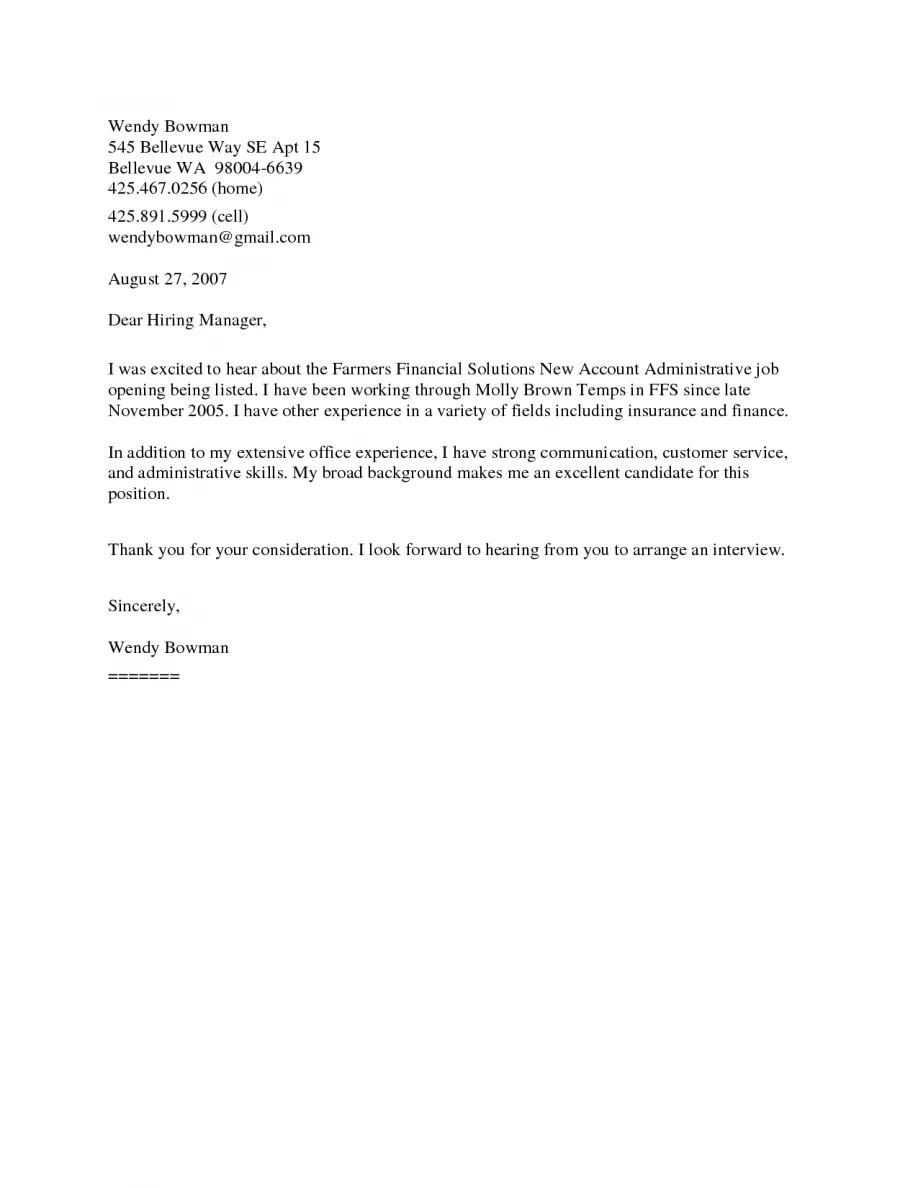
A well-crafted cover letter is your first chance to make a positive impression on a potential employer. It allows you to introduce yourself, highlight your skills, and express your interest in the position. A poorly written cover letter can be an instant deal-breaker. This section will help you create a compelling cover letter that grabs attention and increases your chances of getting an interview. Ensure that your cover letter is tailored to each specific job application. Proofread thoroughly, and ensure it reflects your professionalism and enthusiasm.
Header and Contact Information
Start your cover letter with your full name, address, phone number, and email address. Include the date and the employer’s name, title, and address. Make sure your contact information is accurate and professional. Ensure that your contact details are easily visible and correctly formatted. This part helps the employer know how to reach you if they want to move forward with the application. Always double-check your details to avoid any errors. This section is the first thing they will see, and it should be perfect, reflecting attention to detail.
Personalized Greeting
Avoid generic greetings like ‘To Whom It May Concern.’ Instead, try to find the hiring manager’s name and address the letter to them directly. This personal touch shows that you’ve taken the time to research the company and the position. If you can’t find a specific name, use a professional greeting like ‘Dear Hiring Manager.’ Personalizing your greeting makes a positive impression and shows that you are truly interested in the job. Personalizing your greeting is a small but impactful detail, demonstrating your proactive approach and your attention to detail.
Opening Paragraph Grab Attention
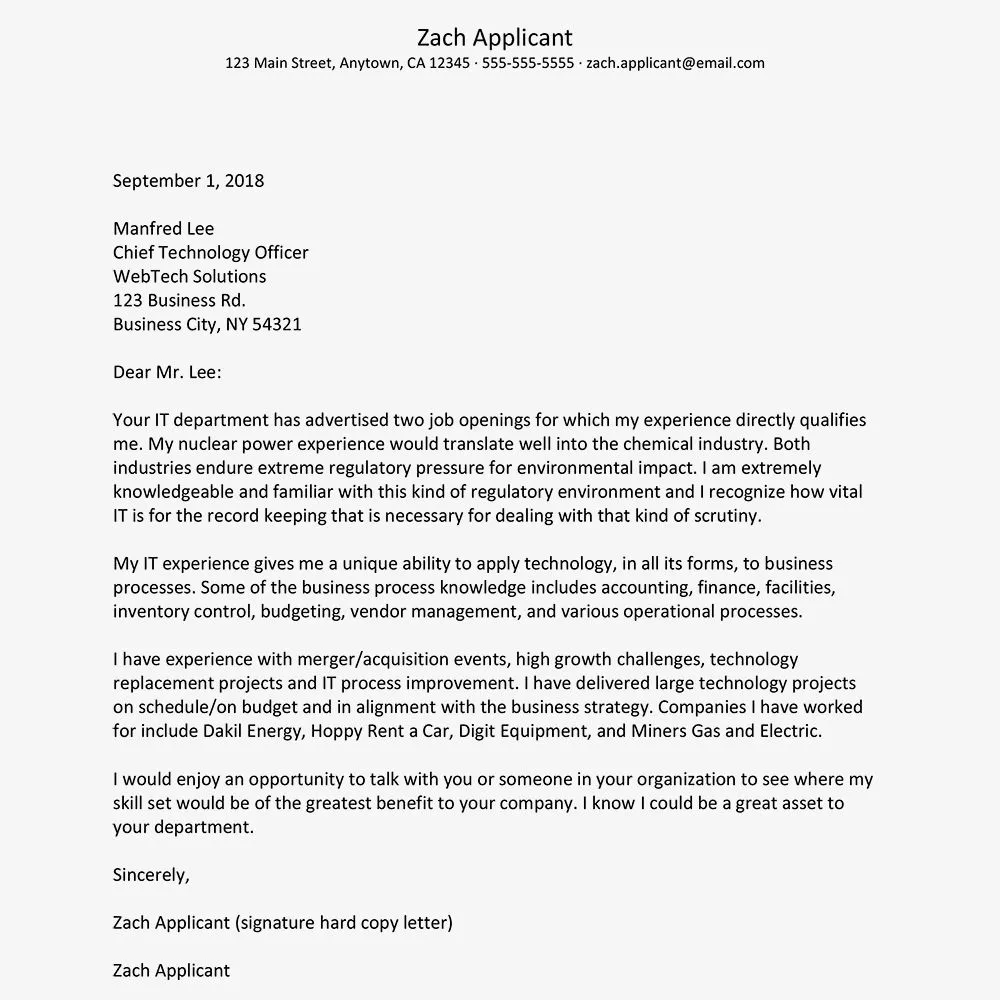
Your opening paragraph should immediately capture the reader’s attention. State the position you are applying for and where you found the job posting. Briefly mention your key skills and experience that align with the job requirements. Show enthusiasm and express your genuine interest in the role and the company. This paragraph sets the tone for the rest of the letter, so make it concise and compelling. A strong opening paragraph is crucial for setting the tone and keeping the reader engaged. It is your opportunity to make a great first impression and get the hiring manager interested in reading more.
Highlighting Relevant Experience
In the body of your cover letter, highlight your relevant experience and skills. Focus on how your experience aligns with the job description and the company’s needs. Use specific examples to demonstrate your abilities. Quantify your achievements whenever possible, and use action verbs to describe your accomplishments. Make sure that your experience matches the job requirements. This should be the core of your letter, where you show your experience, and why you are the right fit for the job. Each point should build a compelling case for your candidacy.
Quantifying Your Achievements
Whenever possible, quantify your achievements to provide concrete evidence of your abilities. Instead of saying ‘Managed projects,’ say ‘Managed projects, resulting in a 15% reduction in project completion time.’ Use numbers, percentages, and specific metrics to showcase your accomplishments. Quantifying your achievements makes your cover letter more persuasive. It allows the employer to understand the impact you can make in the role. Quantifying your achievements is a powerful way to demonstrate your effectiveness and value as a candidate. Including metrics helps the employer immediately grasp the value you can bring to their organization.
Showcasing Skills
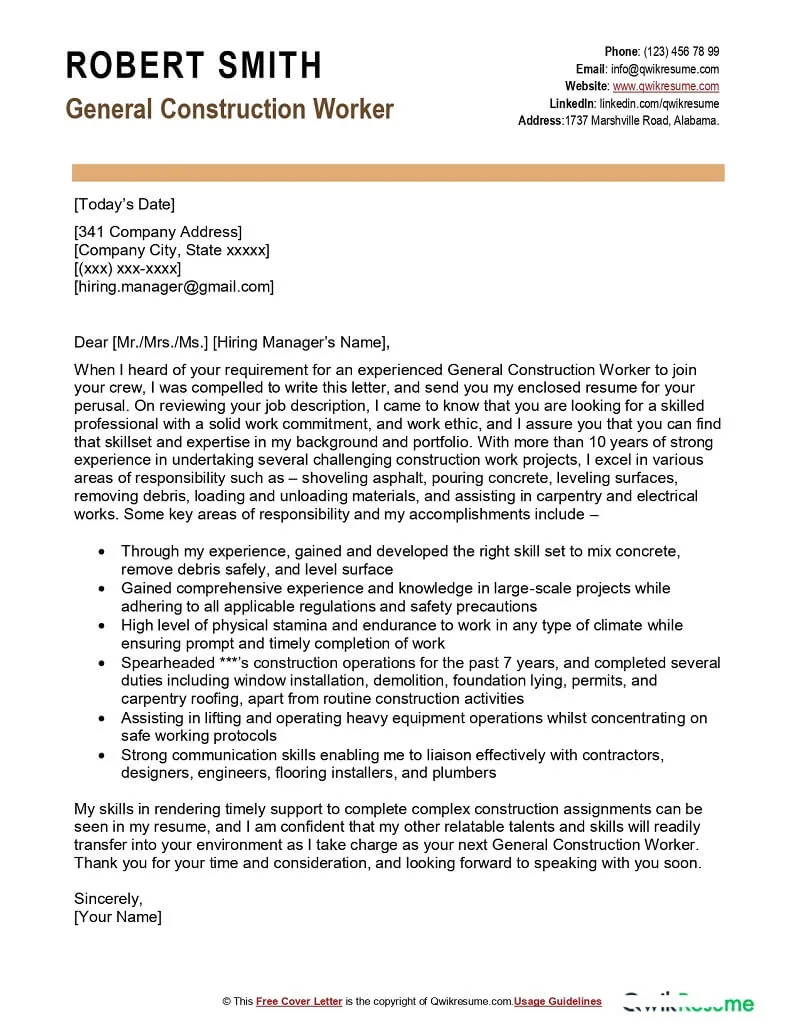
Clearly showcase the skills relevant to the general laborer position. This includes physical skills, such as stamina and the ability to lift heavy objects, as well as soft skills, such as teamwork and communication. Provide examples of how you’ve used these skills in previous roles. Make sure that your skills match the requirements listed in the job description. Showcasing your skills means going beyond simply listing them. It’s about demonstrating how you’ve applied these skills in real-world situations. Tailor your skills to match the job requirements.
Closing the Letter
Your closing paragraph should reiterate your interest in the position and thank the employer for their time and consideration. Express your eagerness to discuss your qualifications further. Keep it brief and professional. The closing paragraph is your final chance to leave a positive impression and express your sincere interest in the role. Reiterate your enthusiasm and make it clear that you are looking forward to hearing from them. It’s a chance to create a lasting impression and encourage further engagement.
Call to Action Requesting an Interview
End your letter with a call to action. Explicitly state your desire for an interview. Provide your contact information and mention your availability. Make it easy for the employer to take the next step. A strong call to action ensures the employer knows what to do next. Make it easy for them to contact you. This shows confidence and a proactive approach to the job search. It is your final step, and you have to be confident with it. Include your contact details again, so they can reach you.
Proofreading and Formatting
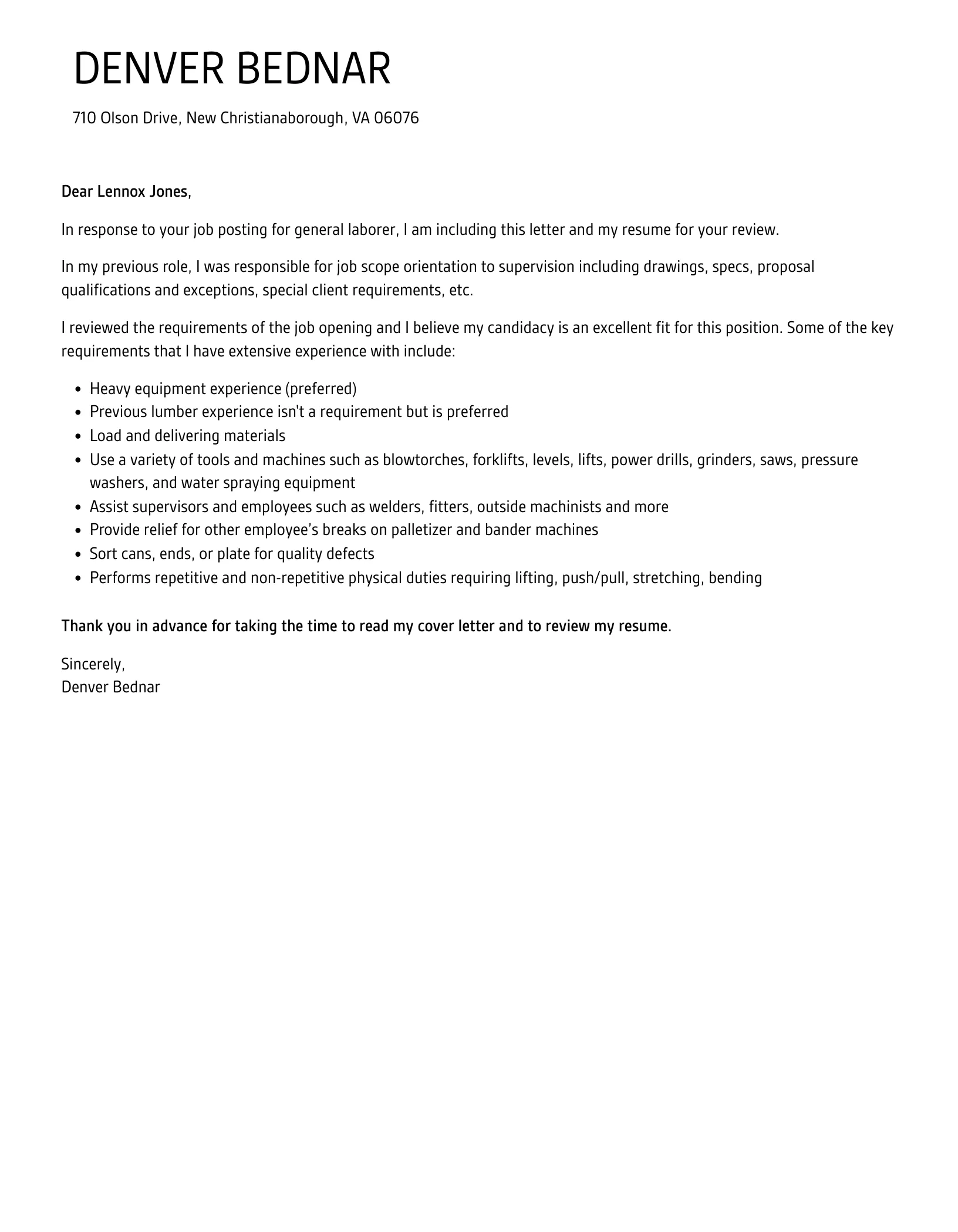
Proofread your cover letter carefully for any typos, grammatical errors, or formatting inconsistencies. Use a clear and easy-to-read font. Ensure that the letter is well-organized and visually appealing. Have someone else proofread your letter to catch any errors you might have missed. Proofreading ensures your cover letter reflects your professionalism and attention to detail. Errors can detract from your qualifications. A well-formatted letter is easier to read and makes a good first impression. Proofreading is more than just correcting mistakes, it’s about ensuring your message is clear and professional.
Common Mistakes to Avoid in Cover Letters
Avoid these common pitfalls to ensure your cover letter makes a positive impact. These mistakes can easily undermine your application. By being aware of them, you can create a cover letter that stands out. Avoid these common errors, and you’ll increase your chances of landing an interview. Making these mistakes could cost you the job. By avoiding them, you will be more likely to succeed and impress your potential employers.
Generic Cover Letters
Avoid sending generic cover letters that could be sent to any employer. Tailor each letter to the specific job and company. Show that you have researched the company and understand the role’s requirements. Customize your cover letter for each job you apply for. Generic letters show a lack of effort and interest. Tailoring your cover letter shows that you care about the job. Avoid generic cover letters at all costs, because they show the employer you are not interested in the job, which can decrease your chances of getting hired.
Typos and Grammatical Errors
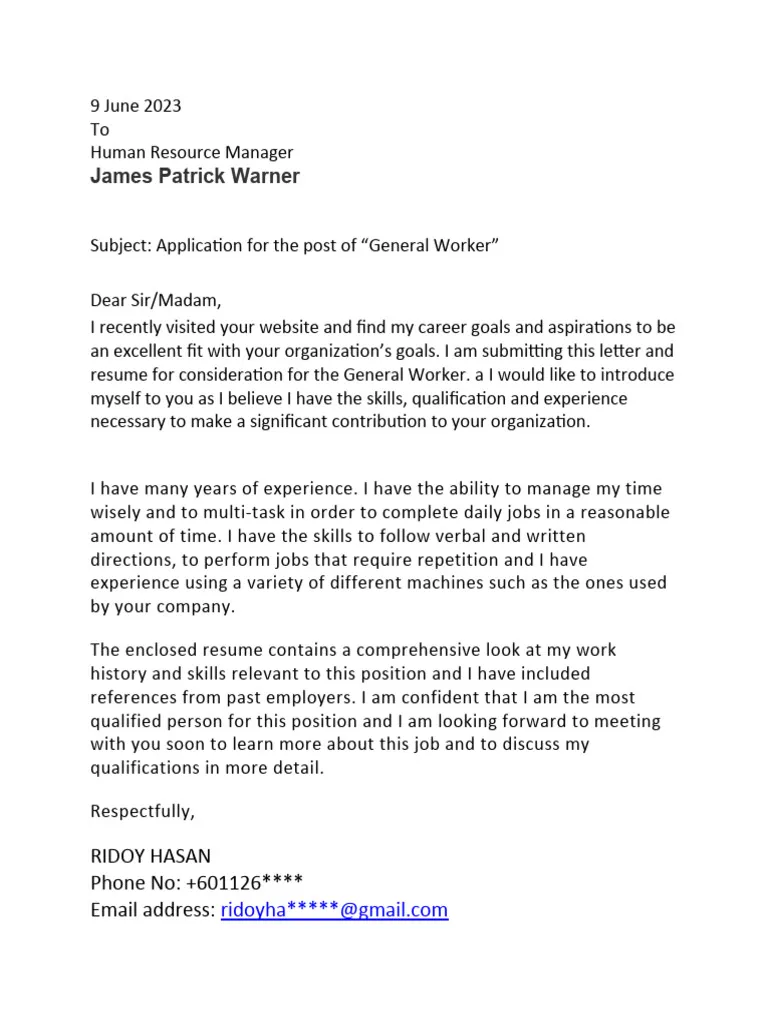
Typos and grammatical errors can make you appear unprofessional and careless. Proofread your letter thoroughly. Use spell-check and grammar-check tools, but also have a friend or family member review it. Double-check all the details. Proofreading is very important. Correcting the errors ensures your credibility and attention to detail. Make sure to avoid any errors, as those could cost you the job. It shows the employer that you do not care about the details.
Lack of Enthusiasm
Show enthusiasm for the position and the company. Use positive and engaging language. Express your genuine interest in the role. Demonstrating enthusiasm makes you more memorable. This makes the hiring manager more likely to consider you. A lack of enthusiasm can make it seem like you are not excited about the opportunity. The employer wants someone who is excited about the job, as it makes the process a lot easier. Show how happy you are to get the job, as this can increase your chances.
Tips for Interview Success
Once you’ve secured an interview, preparation is key to success. Research the company, practice answering common interview questions, and dress professionally. Arrive on time and bring copies of your resume and cover letter. Be prepared to discuss your skills and experience in detail. Interview success often depends on your preparation and presentation. Practice answering typical interview questions. This section will provide advice for the interview, so you can succeed. Your preparation will help you showcase your qualifications effectively and make a great impression.
